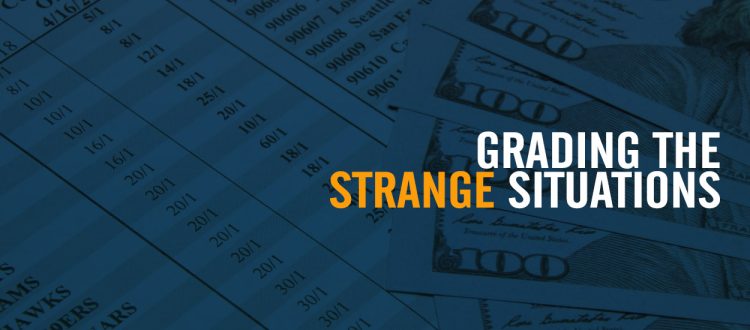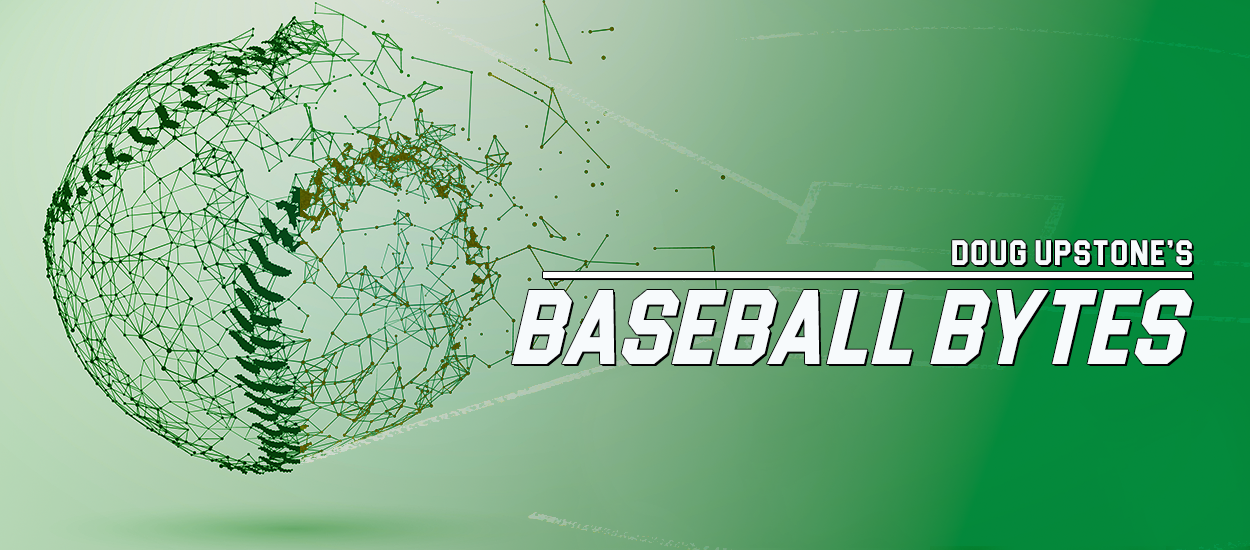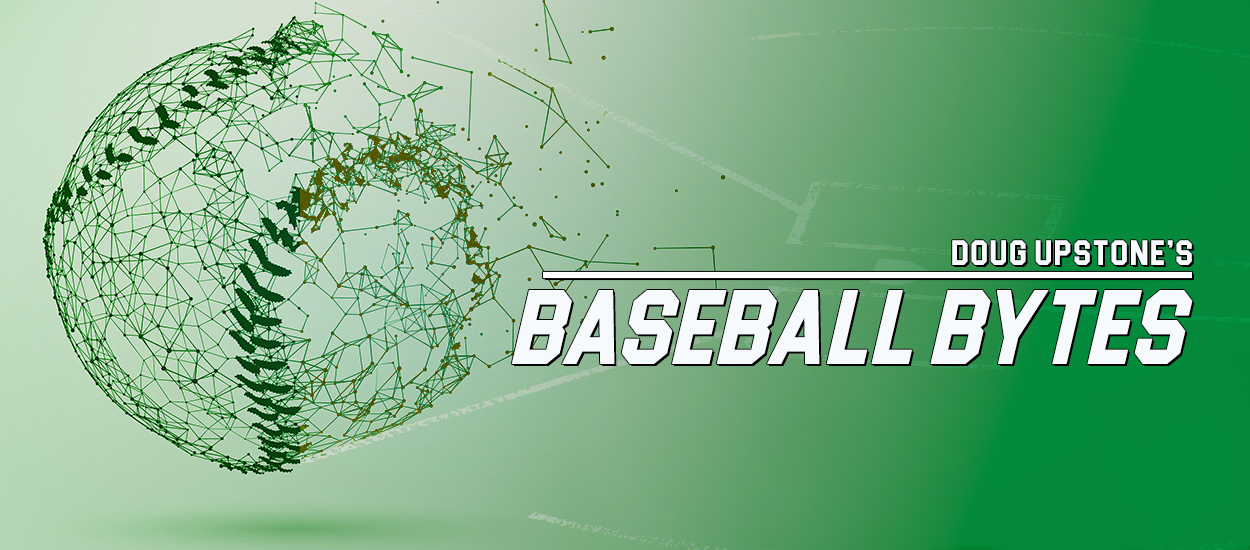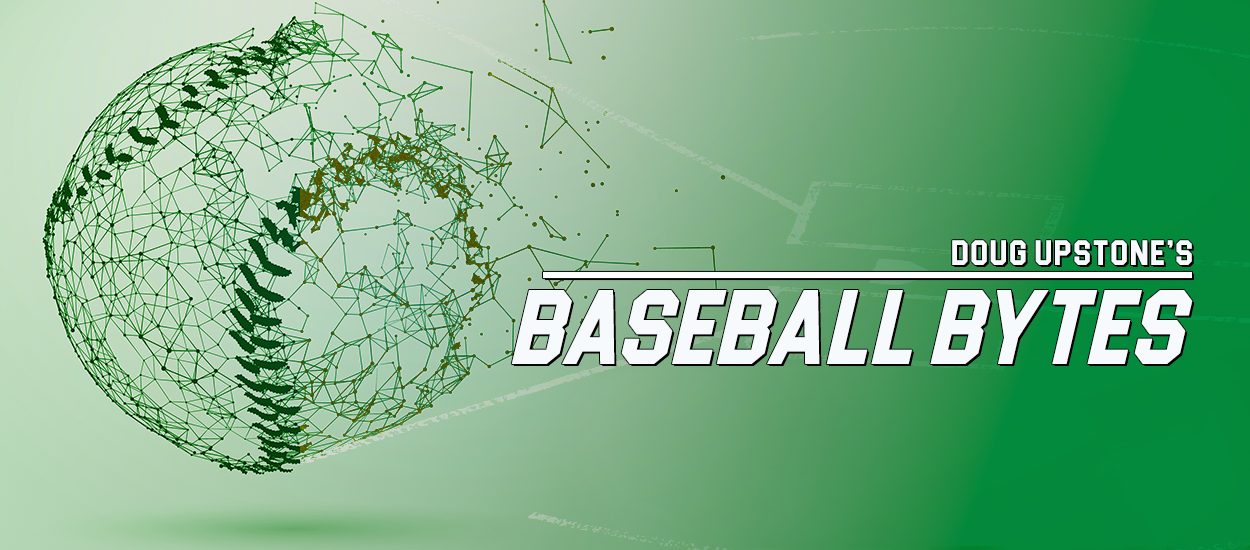Another odd outcome leads to more sports betting rule changes
While licensed and regulated sports betting has only been around in the United States for a few years, betting has been legal and regulated in Europe for far longer. The UK passed the Betting Act in 1961 and several other countries passed laws not long after that to legalize betting on sports. To ensure that bettors and sportsbooks were on the same page on how bets would be graded, each jurisdiction worked with sportsbook operators to create rules to avoid disputes should a bettor feel they were cheated by the sportsbooks. These rules included but were not limited to the determination of when a game or event begins and ends; what the duration of the game or event must be for the bet to be official; how bets will be paid in the case of dead heats; what happens to a bet in the case of a withdrawal or disqualification; what happens to a bet if a game or event is delayed or postponed; what happens to a bet in the case of suspected cheating/game fixing; etc. Naturally sportsbooks have the liberty to change the standard rules for their books if they prefer, but books are generally discouraged from doing so and they must spelled out alterations to the standard rules clearly in writing. Still, almost every single book has the same rules in place for sports like soccer, the four major U.S. sports and most team sports, so that every bettor knows that are, for example, a game must be say 55 minutes in length for action.
Unprecidented events cause rules to change
When books have chosen to change the rules for their own sportsbook, it is almost always precipitated by an unforeseen event. For example, in tennis the standard rule for grading was that at least one set had to be completed for action in a scheduled three set tournament and two sets had to be completed in a scheduled five set tournament for action.  But after some suspected cheating scandals in tennis, including an infamous match featuring Nikolay Davydenko, where Davydenko withdrew after winning the first set in a smaller Polish tournament, despite seemingly appearing ok, and large bets came in on the underdog opponent right up to Davydenko’s withdrawal, many books changed the tennis rules to require that all sets had to be completed for the event to be paid out or every bet on the tournament would be cancelled if either player withdraws before the scheduled completion time.
But after some suspected cheating scandals in tennis, including an infamous match featuring Nikolay Davydenko, where Davydenko withdrew after winning the first set in a smaller Polish tournament, despite seemingly appearing ok, and large bets came in on the underdog opponent right up to Davydenko’s withdrawal, many books changed the tennis rules to require that all sets had to be completed for the event to be paid out or every bet on the tournament would be cancelled if either player withdraws before the scheduled completion time.
So, if a player is down two sets and losing 4-0 in the third set and withdraws, a number of UK books will void bets on the tournament and return the money. The logic for this decision, as explained to me by a bookmaker for a very large UK book, is that tennis being an individual sport that is completely in the hands of the player needs a rule to dissuade any chance that a player can make more by cheating. And when bettors complain, the books will simply point to their rules and regulations. Yet some books have stuck to the original payout rules for tennis and other books have tweaked it as they see fit. Not surprising, this has left a lot of tennis bettors angry and frustrated since every book is different.
Formula 1 betting rules
Another rule that changed over the years relates to Formula 1 racing. The general rule that is still used by most books is that a race starts once the formation lap begins and all bets are action and graded on the results at the time of the podium celebrations. But after a fiasco at the 2005 U.S. Grand Prix in Indianapolis, where all cars pulled off the track after the formation lap with the exception of Michael Schumacher and Rubens Barichello for Ferrari, Tiago Monteiro and Narain Karthikeyan for Jordan-Toyota, and Christijan Albers and Patrick Friesacher for Minardi-Cosworth, many companies changed the rules for F1 betting so they wouldn’t be caught with their pants down again. There was speculation what happened could happen after Michelin told the drivers a couple of days earlier their tires wouldn’t last the whole race, but it was pure speculation and most books were shocked when that did happen. 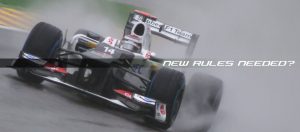 As a result, Michael Schumacher, who was as high as 8/1 odds before the event, won, while a podium finish on Monteiro and points finish on Albers and Friesacher were as high as 1,000 to 1 since they were the worst cars in F1 at the time. Most books paid the bets and lost millions saying they had to follow the rules, although other books paid what they said would have been fair odds without the cars that didn’t start the race. One book only paid 1/20 odds on Michael Schumacher instead of 8/1 which caused rants on the betting forums. Moreover, some books paid the podium and points finish while others did not. The books who refused to pay it said that since only six cars started the race, it made no sense to pay a top 6 finish, although the rule that the race starts once the formation lap is completed complicated the matter. Bettors who wagered on Schumacher and the others were adamant they did nothing wrong. After all, it wasn’t assured the other cars would choose not to start and if they did, the bets almost assuredly would have lost, but many books kicked those bettors out as cheaters and very few non-UK books paid out the podium and points bets.
As a result, Michael Schumacher, who was as high as 8/1 odds before the event, won, while a podium finish on Monteiro and points finish on Albers and Friesacher were as high as 1,000 to 1 since they were the worst cars in F1 at the time. Most books paid the bets and lost millions saying they had to follow the rules, although other books paid what they said would have been fair odds without the cars that didn’t start the race. One book only paid 1/20 odds on Michael Schumacher instead of 8/1 which caused rants on the betting forums. Moreover, some books paid the podium and points finish while others did not. The books who refused to pay it said that since only six cars started the race, it made no sense to pay a top 6 finish, although the rule that the race starts once the formation lap is completed complicated the matter. Bettors who wagered on Schumacher and the others were adamant they did nothing wrong. After all, it wasn’t assured the other cars would choose not to start and if they did, the bets almost assuredly would have lost, but many books kicked those bettors out as cheaters and very few non-UK books paid out the podium and points bets.
Regardless, many books decided to alter their rules from the “accepted standard rules of F1 betting” and changed the rules for their books to eliminate the formation lap as the start of the race and required at least half the scheduled field start for action. Some books went so far as to write into the rules that if a driver withdraws, the book has the right to reprice the market and give the bettor the option to keep the new odds or cancel the bet. One sportsbook manager that made the change said markets are created in the fairness of all and not ‘shot takers’. He also said that to him, the formation lap as the start of the race made no sense, since its just a warmup lap. He said that in horse racing, a horse is deemed to start when the starting gate opens, not when he goes on the track to warm up. So why should it be different for auto racing?
NASCAR snafu causes changes
In NASCAR two years ago, Denny Hamlin won the M&M’s 400 at Pocono Raceway but was subsequently disqualified hours after the race ended due to a minor infraction where an extra layer of tape was put over the wheel opening of both his car and Kyle Bush’s car. Chase Elliot was declared the winner. Sports books, like Bet365, regraded the race, which they already paid out and took money back from bettors who wagered on Hamlin, grading Elliot as the winner instead, while books like BetMGM said that subsequent penalties don’t count and graded Hamlin as the winner. ![]() Then there were books like FanDuel, which paid both as winners, while some books refunded bets on one or the other while paying one of the drivers. Since there were no real rules for such a situation, books made up their own rule to deal with a situation which had never occurred in the past. To combat future grading problems, NASCAR has set up a position called Director of Sports Betting to help books come up with new markets for the sport as well as concrete betting rules for any situation that all books are expected to abide by.
Then there were books like FanDuel, which paid both as winners, while some books refunded bets on one or the other while paying one of the drivers. Since there were no real rules for such a situation, books made up their own rule to deal with a situation which had never occurred in the past. To combat future grading problems, NASCAR has set up a position called Director of Sports Betting to help books come up with new markets for the sport as well as concrete betting rules for any situation that all books are expected to abide by.
Last year, sportsbooks were thrown into a difficult decision when Damar Hamlin collapsed on the field in the Buffalo vs Cincinnati game, and the NFL chose not to restart or reschedule the game. Bets on the game itself were all refunded, but books were left in a conundrum of how to pay out future bets on the division winners, number of games won for the year, etc. Again, some books voided all bets saying a full year wasn’t played while others paid the bets based on the standings at the time. It was a catastrophe for books and not something they could have contemplated and written a rule for, but unless bettors won their bets, they were not satisfied with the decision that was made.
PGA betting rules evolving
And just two weeks ago, the PGA Tour cancelled the final round of the AT&T Pebble Beach golf tournament due to weather. This isn’t an unusual situation since tournaments are deemed official as long as 54 holes are played and tournaments are often cancelled, but what caused confusion and frustration for books and players was in-play bets that were made during or after the third round. There was an indication that weather could force the final round to be cancelled, although the PGA Tour said it would try to get all 72 holes in since this was designated a signature event. Nevertheless, books received a huge volume of bets on Wyndham Clark to win the tournament after the round ended or near the end of the 3rd round when it was clear he would be leading, and they received bets on many prop bets that were more or less decided.  Consequently, the sportsbooks had to figure out what to do with a situation they couldn’t have written a rule for. Most books graded any bets made after the round as void, albeit FanDuel paid out all bets on Wyndham Clark as the winner. But different books made their own decisions regarding in-play bets that were made during the 3rd round, particularly those that were made near the end of the round. Some sportsbooks paid them, some books voided them and some books made a decision to honor bets made only before a certain time of the tournament. One bettor on X was furious that a book cancelled his 10-team parlay that would have paid almost a million dollars if it won, but the sportsbook said they aren’t around to go bankrupt paying cheaters.
Consequently, the sportsbooks had to figure out what to do with a situation they couldn’t have written a rule for. Most books graded any bets made after the round as void, albeit FanDuel paid out all bets on Wyndham Clark as the winner. But different books made their own decisions regarding in-play bets that were made during the 3rd round, particularly those that were made near the end of the round. Some sportsbooks paid them, some books voided them and some books made a decision to honor bets made only before a certain time of the tournament. One bettor on X was furious that a book cancelled his 10-team parlay that would have paid almost a million dollars if it won, but the sportsbook said they aren’t around to go bankrupt paying cheaters.
The key to each of these situations is that they were unpredictable and hence rules could not be written for the exact situations. How could the industry have predicted a situation where almost every F1 team would pull off the track because a tire manufacturer told them that running the race could be risky to their lives? And how could the industry have envisioned in the 1960s or 1970s a situation like Pebble Beach or the tennis tournament since in-play betting wasn’t even considered? I talked to some sportsbook operators who said that in those instances the sportsbooks must do what is in their best interest, while also being fair to the bettor. But they also say it’s a two-way street and bettors who look to take advantage of a situation where the book can’t win, e.g. being Wyndham Clark bets made on late Sunday when it was clear the PGA tournament wouldn’t resume, shouldn’t expect to be paid. Bettors will always argue that they just make the bets on speculation and could lose if the rumor turns out to be unfounded, but it is well known that there are bettors with inside information, whether they work for the sport, whether they are friends of players who feed them unannounced news, whether they work for a newsroom that gets info before it is reported and place bets before the sportsbooks can get the news – these are the ones that sports books have no time for.
It’s time for standard sports betting rules
I talked with an industry analyst I met at the SBC conference about my planned article and he agreed that with so many different books in the U.S. all operating under different rules, there needs to be some sort of industry regulator that comes up with consistent rules for all situations that each book agrees to.
“It’s ridiculous that FanDuel can grade a bet one way, while MGM or Caesars grades it another.” Jason who is a regular at the gambling conferences said to me. “I understand that each sportsbook is independent and have their own backgrounds but it’s only fair to bettors to know that if situation A occurs then it will be graded the exact same way whether the bettor is playing at BetMGM or DraftKings. And with in-play betting, same game parlays, bet boosts and other fairly novel bets that only became popular after the Supreme Court struck down the law prohibiting sports betting, there needs to be rules for those too. It makes no sense that one book voids all bets on a same game parlay if one contestant doesn’t start while another book just regrades it with the remaining contestants. It only causes frustration for the bettors as well as customer service personnel at the books who have to explain why they lose there but win at the other place. And while there are situations that are not predictable, the industry still should have a general rule in place. Do disqualifications after an event count or not? If not then it should apply to every sportsbook. If a game is cancelled then what does that do to future bets? It should be the same rule everywhere. Also, the sportsbooks should be required to stick to the rules and stop offering goodwill payouts as a clear promotion tool. When Jon Rahm withdrew with a 6-stroke lead from the Memorial Tournament it was unfortunate but the rule was clear – a golfer must complete the tournament to win and the winner of matchups is the golfer who completes more holes. Covid was completely unpredictable so the idea of a golfer being disqualified because he was in contact with someone who had the virus while he was not vaccinated was impossible to foresee when the golf rules were written 25 years ago, but it shouldn’t have mattered. All bets on Rahm should have been graded as losers everywhere. BetMGM which paid Rahm as a winner as a goodwill gesture did not do anyone any favors because the next time it happens, bettors will expect the same treatment and to say “this is a one-time offer” doesn’t cut it. Books can use other incentives as a marketing tool but goodwill payouts shouldn’t be one of them.
What I would like to see is a representative from every major sportsbook in the United States and Canada along with a few from the smaller sportsbooks, as well as representatives from each of the major leagues who themselves benefit from legal sports betting, bettors themselves such as Billy Walters, and representatives from groups like The American Gaming Association create a committee and set the rules for betting in North America. They can go through every situation and come up with standard rules that apply everywhere. And as part of the endeavor, they should think up situations that may arise and say if that happens then what should we do? There is simply too much money being bet and too much importance for the future and integrity of sports to let things be handled on an ad-hoc basis. Only then will the bettors and books know concretely how to pay out bets in all situations. And in the rare instance where a completely unforeseen situation occurs that can’t be planned for, a subcommittee should be created to discuss it and determine how every book should pay the bets before anything is paid out. That’s how many other industries work and that’s how the sports betting industry should work too.”
So once again the sports betting industry was caught with their pants down when the PGA Tour cancelled a tournament last week leaving books in a conundrum of how to pay out in-play bets on the winner. But, as usual, books made the decision on the fly, since there was no concrete rule in place. As Jason said, the industry is just too big and important to leave it up to the whims of traders at the individual companies to decide how to handle a unique situation for payouts.
Bettors, sportsbooks and the industry deserve to know what the rule is in any situation and every book should abide by the rule as written so there is no debate. The UK did it early on with soccer betting, the horse racing industry did it with horse racing, so it’s about time the same is done in North America with all types of bets including in-play betting and same game parlays. Only then can disputes between books and bettors on how a bet should be paid out finally end.
Read insights from Hartley Henderson here at GamblersWORLD!

